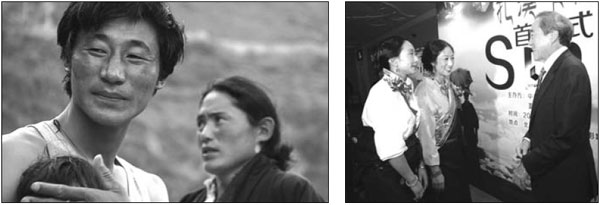Documentary shows heart of cleft-palate efforts
Updated: 2013-10-24 07:35
By Liu Zhihua (China Daily USA)
|
||||||||
With the help of hospital partners of Smile Train, CCTV Documentary Channel (CCTV-9) has made a film, Dzachuka's Smile, to promote the free treatment project for those suffering from cleft lip and palate.
The documentary tells the story of how Tibetan people living in Dzachuka got to know about the Smile Train program, and finally made their way to a hospital in Chengdu to get their children with cleft lip and palate cured, with the help of two Tibetan sisters.
"I have heard lots of stories about people with cleft lip and palate, but it is Smile Train that enables me to know more about the condition and its effect on patients and their families," says Wang Chongxiao, director of the documentary, on the premiere held in September.
|
Left: Documentary Dzachuka's Smile features Dorje's experience of getting help from Smile Train for his son to get a free operation. Right: Traga Lhamo (center) and Yeshe Lhamo, the two sisters who work in the county government of Dzachuka, express their thanks to Charles Wang on behalf of the patients at the premiere of the documentary. Photos provided to China Daily |
"Cleft lip and palate surgery is not difficult or costly, but still, some people cannot afford it, and worse is that they don't know there are charity programs that can help them, such as Smile Train.
"We are glad that we made the film, and we want to tell the public the message that the disease is curable, and there are free surgeries."
It took more than two years for the production team to prepare for and to film the documentary in Dzachuka, going through lots of unexpected and sometimes even life-threatening situations, such as floods, mudslides and a Tibetan mastiff attack.
"Before approaching Dzachuka, we had never imagined that there would be such a poor and barren place, or that there would be so many children suffering cleft lip and palate," says Jiang Hao, vice-director.
People there live mostly on government allowance. Most of them don't speak Mandarin and the area seldom sees any visitors.
The production team had to ride on horseback to visit patients living in remote areas, carrying heavy equipment on their own back.
Jiang fell from his horse twice, and the wounds didn't heal even two months after shooting was finished. The photography director developed pneumonia, after he rushed into a cold river to rescue trapped passers-by, and is still recovering from complications.
Worse, their Tibetan guide and photographer fell from a collapsing staircase and broke three vertebrae when he was climbing a roof to shoot a scene.
It is a miracle that he recovered, after two major operations and months of hospitalization, says Wang Chongxiao, the director.
Liu Wen, director at CCTV-9, speaks highly of the documentary and its production team. "The documentary is a fruit of the cooperation between CCTV-9 and Smile Train," Liu says.
"We hope through the documentary more people can better know the cleft patients and do something for them."
(China Daily USA 10/24/2013 page9)
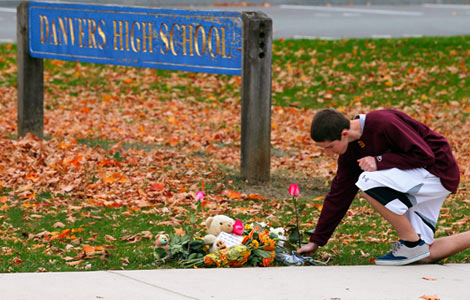
 Mass. teacher slain; 14-year-old student charged
Mass. teacher slain; 14-year-old student charged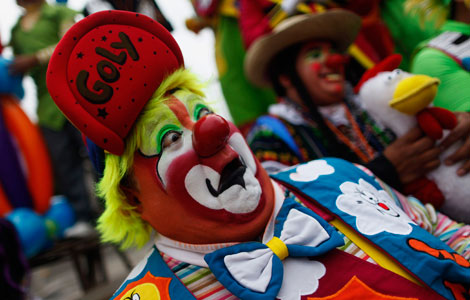
 Latin American clown convention
Latin American clown convention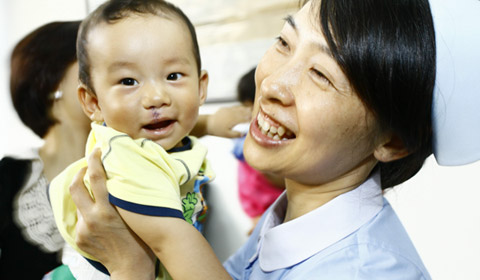
 Driven by smiles
Driven by smiles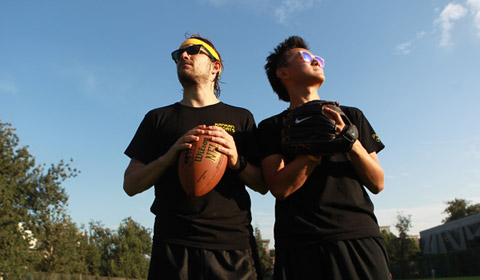
 Camp gives sporting chance for students headed overseas
Camp gives sporting chance for students headed overseas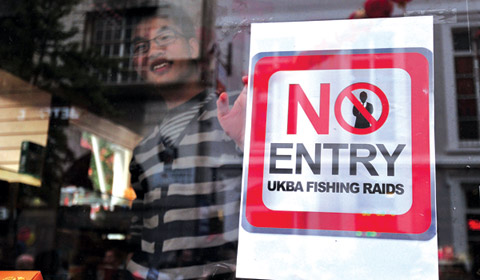
 Chinese protest UK 'fishing' raids
Chinese protest UK 'fishing' raids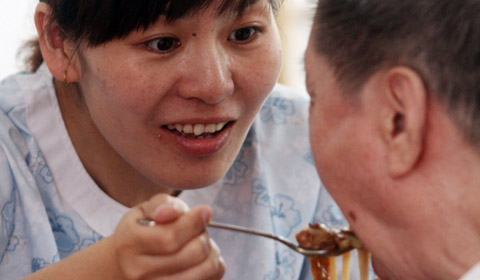
 Caretakers in need of counseling
Caretakers in need of counseling Pumpkin fun ahead of Halloween
Pumpkin fun ahead of Halloween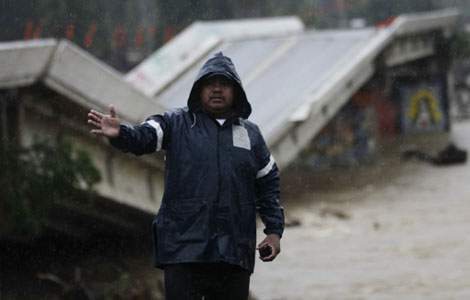
 Weakening Raymond soaks Mexico, no serious damage
Weakening Raymond soaks Mexico, no serious damage
Most Viewed
Editor's Picks

|

|

|

|

|

|
Today's Top News
China's GDP growth to 7.6%: Standard Chartered
Scholar looks at the kung fu-hip hop connection
Mobile giants talk future in Frisco
Starbucks' pricing furor: tempest in a coffee pot
100,000 Strong student exchange picks first partners
Report: China could profit rebuilding US
US-China trade talks a 'turning point'
Steady growth the goal for GDP
US Weekly

|

|
